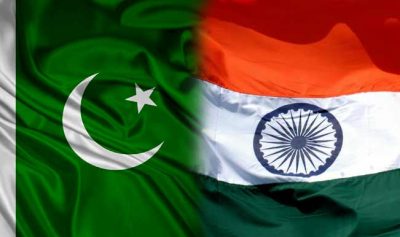By
Ananya S Guha
It is a tragedy that when Prime Ministers of two neighbouring countries meet after a ‘goodwill’ visit it is no more than a faked ornament.
The two countries known for their battle of attrition, always talk about peace and goodwill. Many a time such visits have been lauded by the people of both countries as a positive development, and as something to tell us that geo politics apart, for historical reasons, and the emergence of the two nation theory, abetted by terrorists working within, the attrition continues unabated.
But peace, negotiations, the catch words here are elusive, as the tough speaking continues, and India is battle scarred obviously by memories of November 2008. But it is irony at its worst, or best that almost recurrently after such meetings take place with the Prime Ministers of the two countries bashfully smiling at each other that some attack or other takes place with the kind of impunity which will shame the worst two timer.
The Pathankot incident is not only an example, it is a veritable slap in India’s face – as if to say: see this is what we can do and get away with it. Such brash realities apart, and that India is taking things sometimes lying down, is only an indication that things have come to a sordid impasse. And both countries know it, notwithstanding the plastic smiles the Prime Ministers of the two countries have on their faces, the fact is this is a kind of acting which will put any thespian to shame. And this has been going on for years, cheating the people of the two countries, most of whom want respite.
The fact is that the ticklish issue of contention is Kashmir, and without categorically speaking on it nothing will inch forward. We have to stand by legitimate historical happenings, that it became an integral part of India after independence, no matter what the sceptics say that it was done under duress by an effete Raja. Done is done, what happened is history, and that paved way for the future destiny and shaping of India. But when a country talks about POK, ie. Pakistan occupied Kashmir, it introduces the element of coercion and the attributes of war, silent or not so silent. Cold or hot, in between of course there were two official wars and one where India played an interventionist role to save a fledgling nation from oppression and tyrannical force. Perhaps this is what Pakistan cannot forgive nor forget. Its historical memory is tainted – hurt and wounded by this humiliation, and also because of the fact that it is bedevilled terrorists ruling the roost from outside countries as well, and factious religious groups within at each others’ throats.
Then now we have Pathankot which is not only a clear military attack, but has also shown how internal security in India is in shambles, marked by lassitude and indifference. To enter a supposedly guarded area, in uniforms and gunning down soldiers is a sign of the breakdown of intelligence wings, and of course support from within. Things have not come to a resolution as to who are the culpable ones, but the blatant attack was pre planned meticulously and catching the Army unaware is a sure sign not only of gross negligence and apathy but also one which shows how weak kneed our much vaunted Army is.
So once again the clock has been put backwards, to talks and other niceties. This is the pity of it. The Home Minister of India’s confession that there was a lapse is a word put softly, mildly. Innocent lives have been lost by people doing their duties to save a nation from barbaric terrorism. But the Indian question should be this: why has this happened, especially after Modi’s visit which was a good gesture.
The India-Pakistan relationship is also bedevilled by the Muslim question in India and the relationships within, overtly watched by Pakistan. The powers to be within India should know that this is a very sensitive issue which can have international ramifications. The Dadri incident could have given a foil to many. It was an incident which was not only not properly handled but callously, leading to protests from all sane elements who decry bigotry of any form. But people wait and watch, fanatics and their like.
To get out of this tangle the two countries must talk straight, not make mention of the proxy war, but certainly blatant attacks like that in Pathankot must be brought before Pakistan’s eye as something which is not only war, but violates all international laws of propriety. Pakistan’s argument, the beaten track one, is that these are people who do things and operate without their knowledge or support. Does it need only the US to weed out such elements, as happened in the case of Bin Laden, an example which clearly stated Pakistan’s ambiguity and double standards?
India must be wise in handling the Muslim population. Indian Muslims are Indians, any attempts to divide them on a tenuous and apocryphal basis will be detrimental to the cause of both countries. India has the second largest Muslim population in the world, their allegiance cannot always be questioned on the basis of religion, or religious zealots. True there have been intermingling of terrorists with local populations, but these cannot be generalized. Doing this would mean alienation, and alienation in a diverse country like India, with dual, treble loyalties like language, religion, caste and dialect is like splitting the atom.
India should know it and Pakistan should know it; that the two nation theory was brought about not only because of political expediency, but also because of historical and cultural arguments. To thinly divide culture, language and religion is to drive a monstrous wedge into the monolith of countries.



No Comments Yet!
You can be first to comment this post!